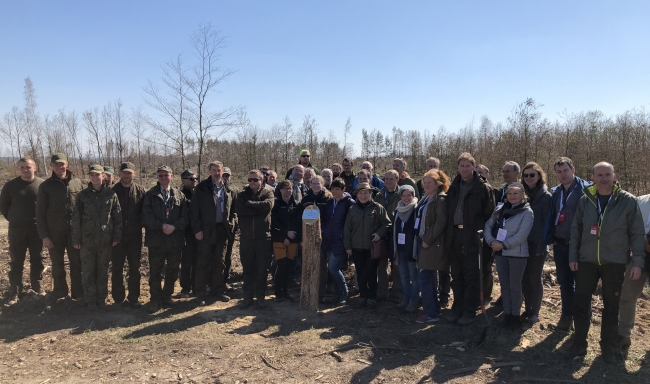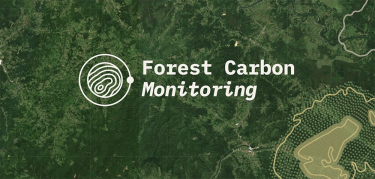Cooperation network sets the course after calamities
Members from 10 different European countries have gathered to establish best practices for forest management post disasters, in a meeting organized by the European Network Integrate, the Ministry of Environment of Poland and State Forests, and facilitated by the European Forest Institute.
Participants agreed on the importance of European collaboration to exchange knowledge and experiences to adjust and integrate forest management practices responding to both conservation and forest production demands.
“The European Network Integrate promotes and advances forest management approaches for the integration of nature conservation into sustainable forest management at three levels: the decision-making policy level, the level of forest practitioners and managers, and the level of research and academic knowledge, which is unique in the European context”, said Georg Winkel, Head of office - EFI Resilience Programme.
The event started by the screening of the movie ‘The Forest - See the imperceptible’ in Toruń’s Planetarium. This movie brought the audience back to the times where children lie on the grass looking through the tree leaves into the sky and set the stage for the meeting.
On the second day, the participants visited the Rytel Forest District heavily affected by windthrow in August 2017. The State Forests cleared most of the areas to prepare planting, but there are some stands left for natural regeneration. Participants of the meeting engaged in replanting the forest with oak seedlings, later discussions evolved around the measures needed to respond to such a disturbance.
“The total area of stands destroyed amounted to nearly 80,000 ha. Two years after the disaster, most of the land has been cleared and intensive restoration is underway”, said Polish Minister of Environment.
Representatives also went to a tree nursery in Bielawy that is schedule to produce over 6500 mil local Scots pine seedlings this year to help regenerate the affected Tuchola Forest. They had the opportunity to share experiences with local foresters, representatives of social organizations, local authorities, environmental protection administration, and students and teachers from the Tuchola Forest School.
The third day of the workshop included presentation from the Network members and a representative of the European Commission. The discussions focused on strategies to better cope with threats such as storms, bark beetles and climate change effects, for example, the Vaia storm, which affected Italy, Austria and Slovenia. Tomáš Krejzar from the Czech Ministry of Agriculture elaborated on integrative strategies to combat the recent bark beetle outbreaks, which was echoed by the Slovakia and German members.
“The work of the network will centre on integration and segregation of biodiversity in forest management. Denmark is setting-a-side 20 % state forest for biodiversity and we will share our experiences involving researchers, NGOs and other stakeholders in the process. Also we will arrange an event on integration of biodiversity in close-to-nature forest management in Denmark. We will encourage experts from the European community to contribute at the meetings, we see this as an important part of our interest in the INTEGRATE network”, said Mogens Krog, from the Danish Environment Agency and new chairperson of the Network.
If you would like more information about this topic, please contact Researcher, Anna Begemann at +49 (0) 173 6293085, or email anna.begemann@efi.int
Further details on the meeting is available here.



